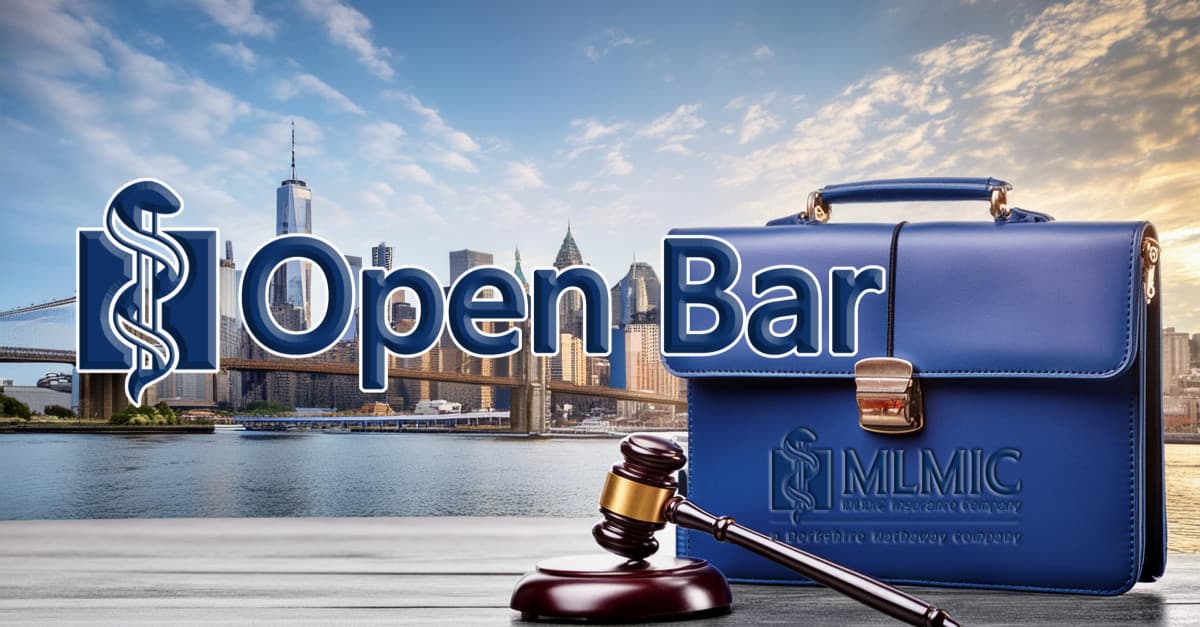< Back to Publications & Resources
Open Bar: The Use of Medical Assistants in Office Practices

This blog discusses the permissible use of medical assistants (MA) in physician practices. It is important for physicians and other licensed professionals to understand the scope of practice for these important employees so that MAs employed or supervised by them do not run afoul of these limitations. By appropriately limiting the scope of MAs, supervising medical providers and practices also protect themselves from allegations of improper delegation of medical tasks to unlicensed personnel.
What is an MA authorized by New York law to do? Secretarial work, taking vital signs, doing ECGs and assisting practitioners in doing tasks that do not require medical judgments or decisions are appropriate roles for MAs. If the MA is under the direct supervision of a doctor or other licensed personnel, the MA can be a scribe, enter the history and physical examination results into the medical record, copy medications, allergies and family history into the EMR or otherwise assist the patient. The physician should verify that the MA’s recording of information is correct.
Quite often, when an MA walks into an examination room, patients do not know that the person is not a licensed professional and assume the person is an LPN or RN. The New York State Board for Medicine has made it quite clear that medical tasks can only be delegated to licensed professionals. MAs are not legally permitted to perform those medical tasks that are within the scope of practice of a licensed professional (May 2004 Letter Opinion from Thomas Monahan, Executive Secretary New York State Board of Medicine). Examples of medical tasks not appropriate for an MA include triage and drawing up or administering immunizations or vaccines. It is important to remember that whether a medical assistant is certified or capable of performing a medical task is not the question. They cannot perform activities delegated specifically to other licensed professionals.
An MA may assist a licensed professional, under direct supervision, in carrying out a task that does not require medical judgment or decision-making. Examples of this include the removal of a suture and changing or applying a dressing from an open sterile package under the direct supervision of an MD or other licensed professional. This assumes that the MA has first been trained and evaluated in successfully doing that task. Likewise, if appropriately trained, it is acceptable for an MA to help collect, prepare and transcribe laboratory specimens (e.g.., urine dipsticks, phlebotomy, throat and cheek swabs, superficial cultures) and perform basic hearing and vision tests.
The most important thing that licensed physicians and other licensed professionals should know is that it is professional misconduct in this state to delegate to unlicensed personnel those tasks that they are not authorized to perform. Education Law 6530 (II) states that permitting, aiding or abetting an unlicensed person to perform activities restricted to licensed personnel is misconduct. In other words, knowingly delegating medical tasks to a person not legally authorized to perform them may constitute professional misconduct. Thus, appropriate delegation to medical assistants benefits both the MA and the practice/licensed professional supervising or employing the MA.
MLMIC policyholders can reach out to our healthcare attorneys for questions about the role of medical assistants in New York or to ask any other healthcare law inquiries by calling (800) 275-6564 Monday-Friday, 8 a.m.-6 p.m. or by email here.
Our 24/7 hotline is also available for urgent matters after hours at (877) 426-9555 or by emailing hotline@tmglawny.com.
Follow us on Facebook, LinkedIn or Twitter to stay in the loop about the medical professional liability industry.
If you are not already a MLMIC insured, learn more about us here.
Sources:
- May 2004 Letter Opinion from Thomas Monahan, Executive Secretary NYS Board of Medicine.
- Education Law 6530 (II)
This document is for general purposes only and should not be construed as medical or legal advice. This document is not comprehensive and does not cover all possible factual circumstances. Because the facts applicable to your situation may vary, or the laws applicable in your jurisdiction may differ, please contact your attorney or other professional advisors for any questions related to legal, medical or professional obligations, the applicable state or federal laws or other professional questions.



